The start of the Mosquito Alert-project 2024

An inspiring day full of sharing knowledge
On February 6th, students from Avans College, PhD students from One Health PACT and several school representatives from schools such as Northgo College, Ubbo Emmius, and Eligant Lyceum came together at the Nieuw Instituut in Rotterdam for the teacher training of the Mosquito Alert-project.
Project 2024
The students from Avans and other Technasium schools will conduct small research projects for One Health PACT PhD students, contributing to the research on mosquito-borne viruses. In return, the PhD students will assist the students in conducting their research through masterclasses and feedback sessions. The central question for the project this year is: “Is your own environment a suitable breeding ground for mosquitoes?”
At the final event on the 14th of June, the students will present their findings using self-made posters based on their research!
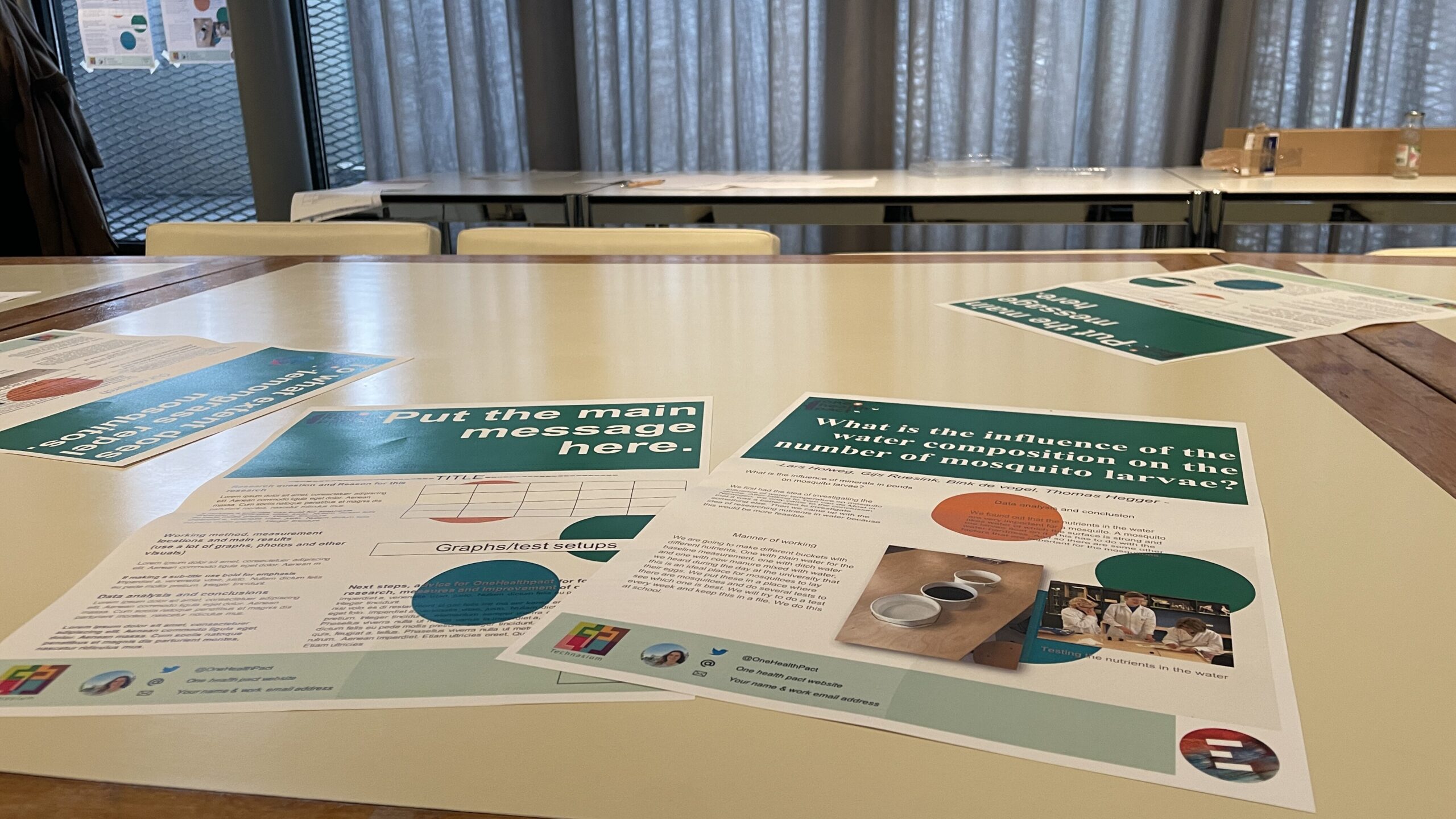
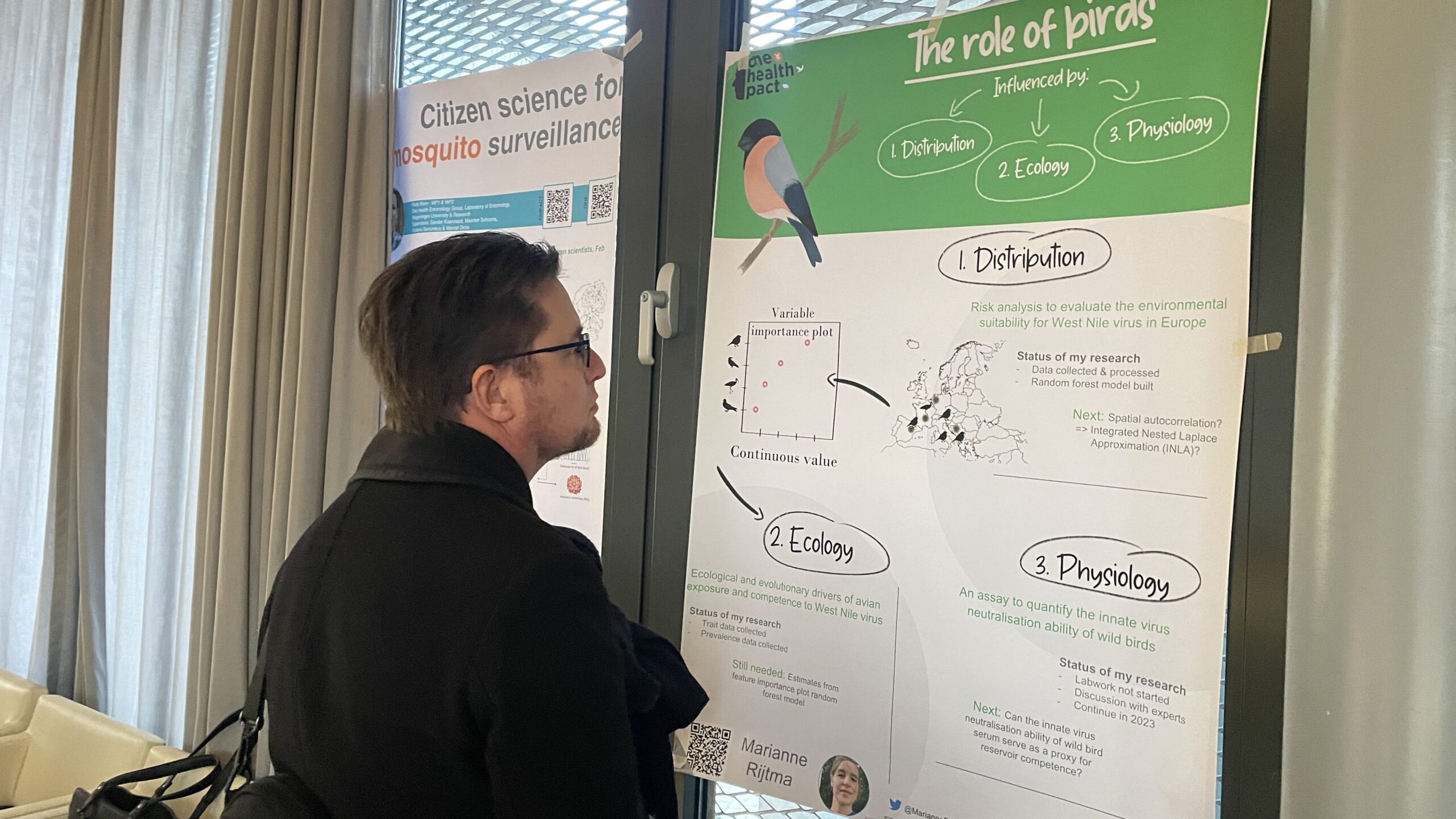
An introduction in the field of mosquito-borne viral infections
After an introduction by Wilco Zwennis (Technasium Foundation) about the project, Prof.dr. Eric van Gorp (internist/infectiologist/virologist Department of Viroscience, Erasmus MC) provided an introduction in the field of mosquito-borne viral infections. The audience listened attentively as he talked about preparing for a pandemic and actions that can prevent serious outbreaks: “The sooner you start observing, the faster you can act when there is an outbreak. You can prepare for what might happen, predicting exactly when it will happen, that’s the challenge.”
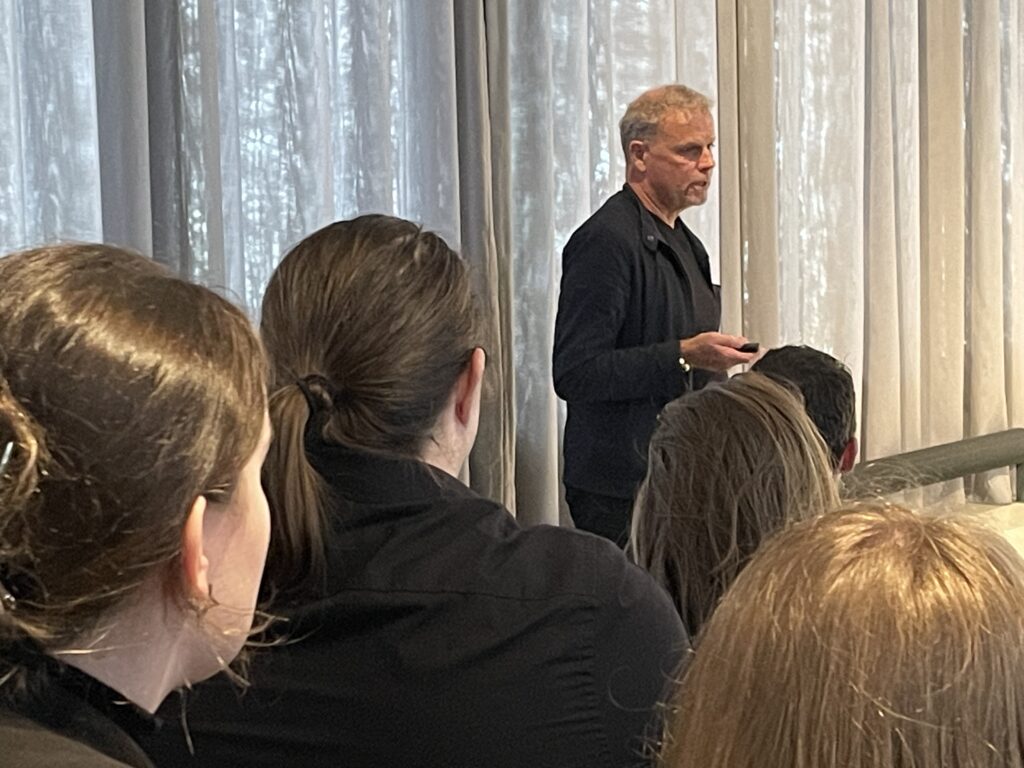
Lisa Bauer (Postdoc Department of Viroscience, Erasmus MC) gave a mini-lecture on how we can study brain infection of viruses. She shared an example of the impact of viruses on the brain: “During COVID, it quickly became clear that one of the symptoms was loss of smell and taste. Then we knew that this needed to be investigated. In the research lab, after thorough investigation, it became clear that the first variant could infect cells of the central nervous system. We also studied the Delta and Omicron variants on these factors. It turned out that they had less effect on the cells in the central nervous system, than the first variant. This was also reflected in society, fewer people experienced loss of taste or smell.”
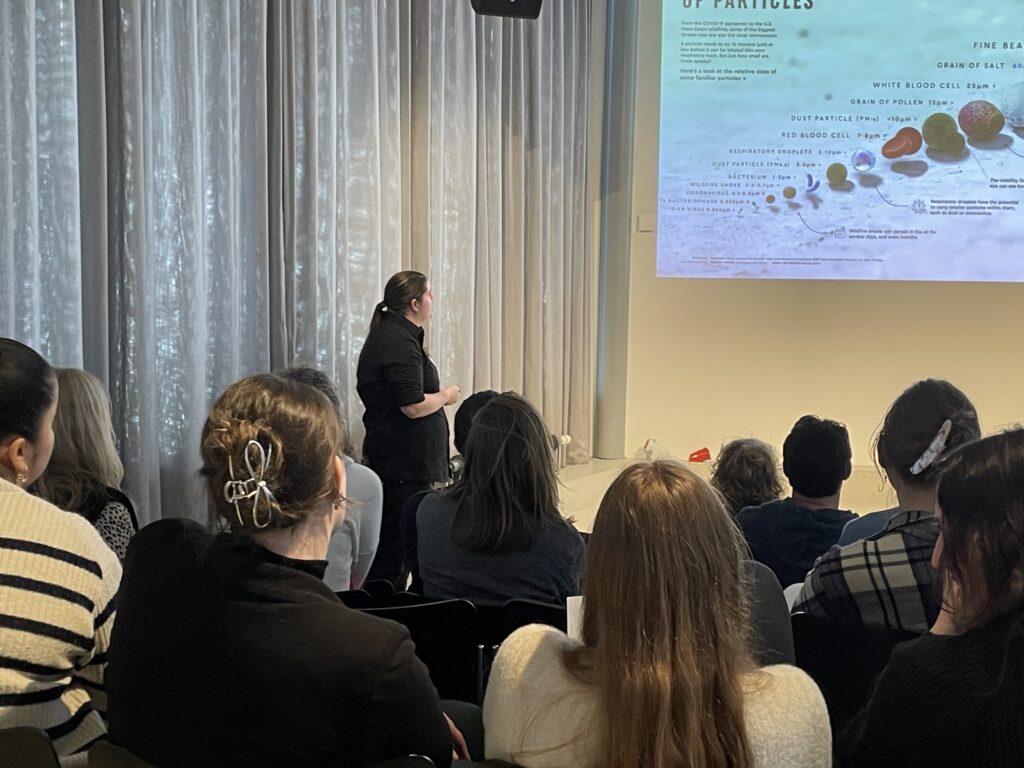
Special guests!
To actually start with conducting the research projects, the students and teachers received a masterclass on how to formulate a research question from Sander Harting (lecturer Applied Biology, field of aquatic ecology, Aeres University of Applied Sciences). Sander brought along some special guests to immediately apply the material: maggots!
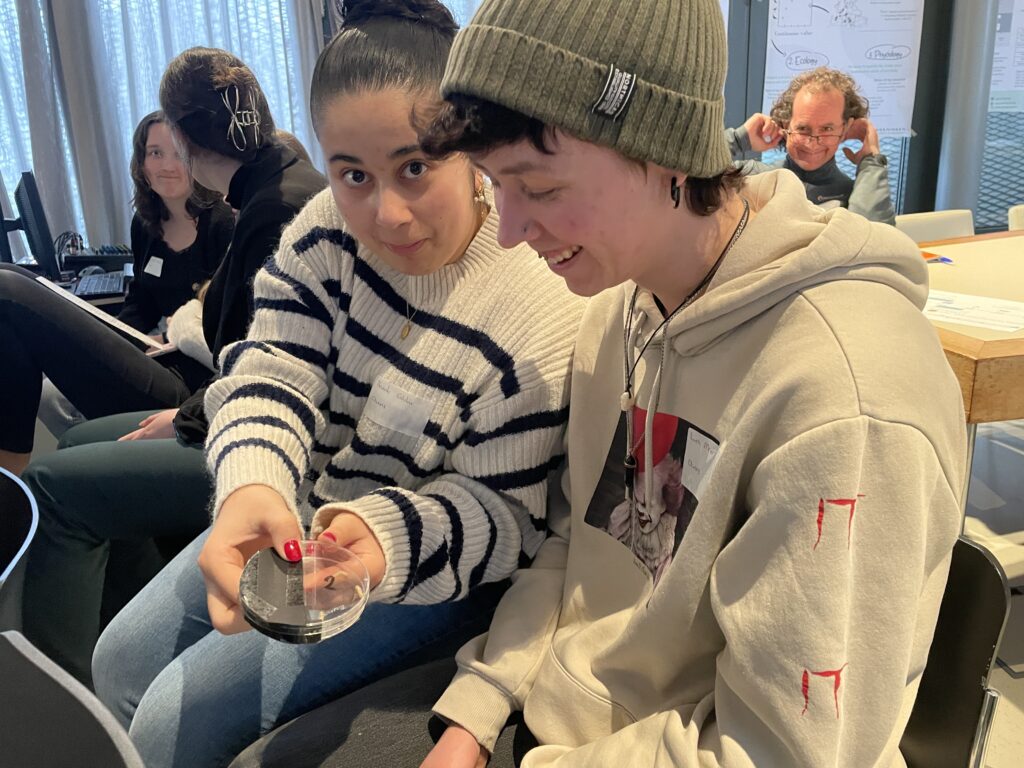
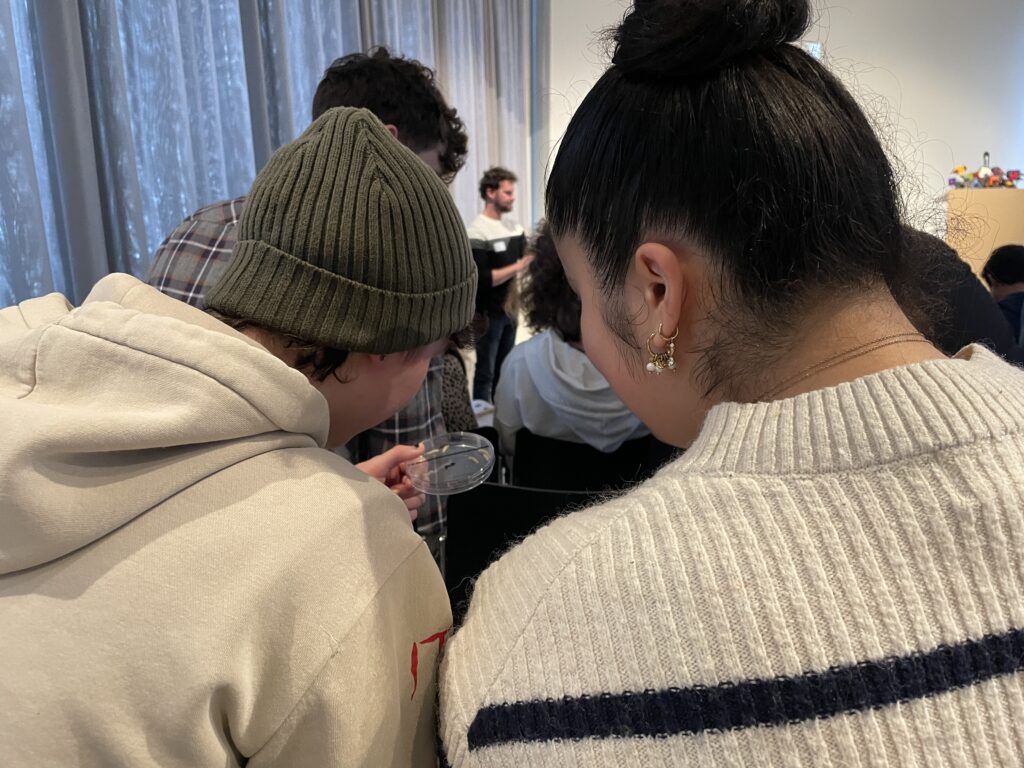
The data collected by the students must be shared in the Mosquito Alert app – one of the citizen science projects of One Health PACT. Santi Escartin (Spanish National Research Council) shared his knowledge and insights on how to use the app for data collection.
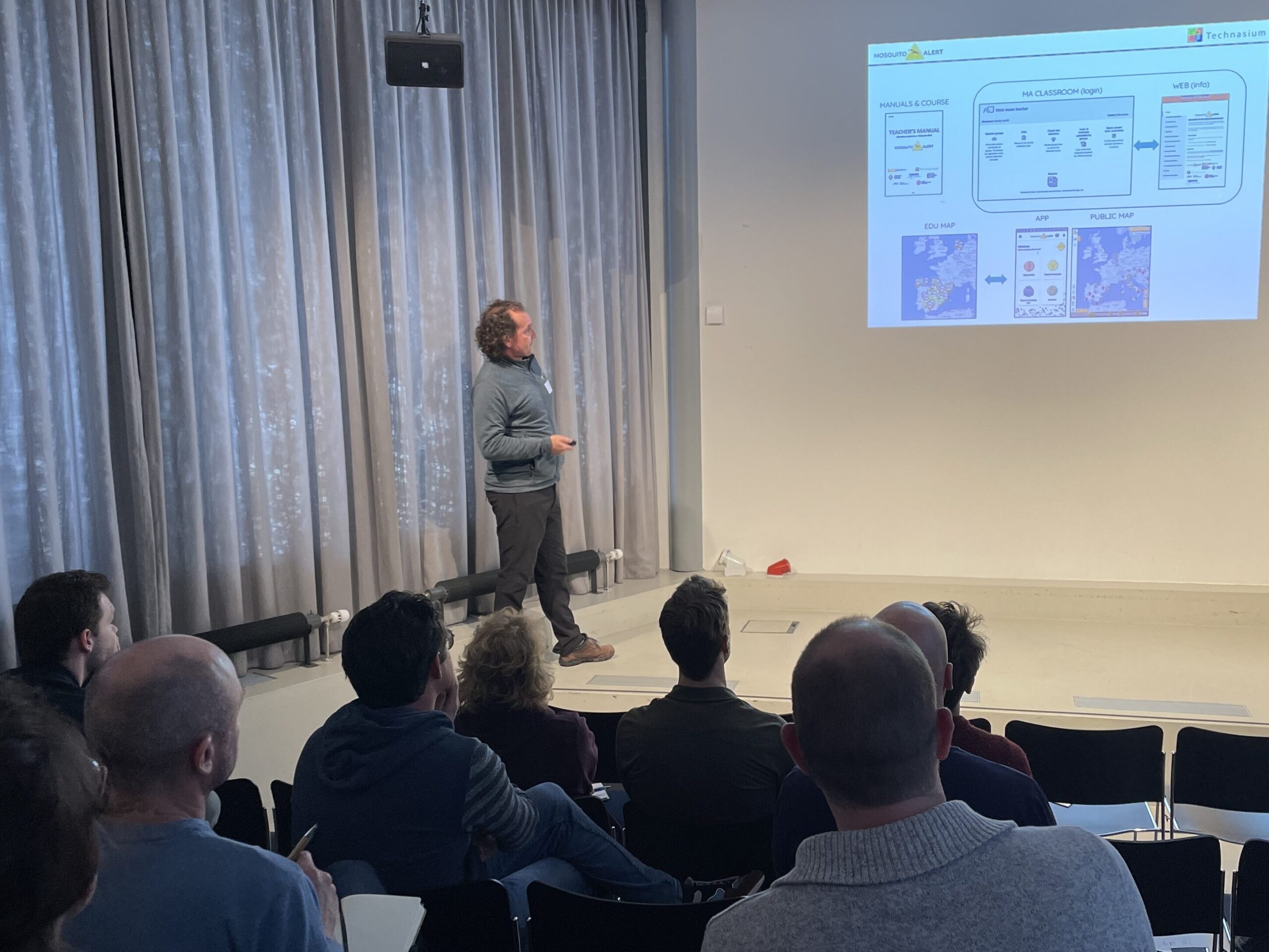
Afterwards, the students and teachers came together in groups to make agreements about the progress of the research. Positive reactions followed: “Great project! First time I’m doing it, it seems very interesting!” from Edwin de Laat (Jacob Roelant Lyceum).
The next meeting is scheduled for March 22nd at Avans University of Applied Sciences in Breda, where the students will receive a masterclass on how to set up their research project!
Participate with your school!
Do you want to participate with your school in the Mosquito Alert project and directly contribute to the research on mosquito-borne viruses? You can share your interest and information to w.zwennis@technasium.nl.